Boldly let enterprises shoulder the country's responsibilities
After the bold proposal "causing a fever" by Vinspeed, Truong Hai Group ( Thaco ) has recently proposed to take charge of implementing the North-South high-speed railway project. Without discussing the details of the project, the fact that two private enterprises proposed to invest in a national key project right after the Politburo issued Resolution 68 and the National Assembly passed Resolution 198 is considered a positive signal, showing that private enterprises are ready to shoulder major national responsibilities.
Economist , Dr. Le Dang Doanh, former Director of the Central Institute for Economic Management (CIEM), assessed that having many domestic enterprises participating in investing in large projects is a good signal for the whole economy. This gives the Government more good options to implement. In particular, the North-South Expressway is a national key project with the largest capital ever that private enterprises enthusiastically participate in, showing that they trust in the policies of the Party and the State. At the same time, this also shows that domestic private enterprises have grown stronger, more confident and can do anything.
The government is aggressively implementing the North-South high-speed railway with the goal of starting construction in December 2026.
PHOTO: AI Graphics
According to Dr. Le Dang Doanh, with the enthusiastic response from businesses, along with the policies that have paved the way for private economic development that the Party and Government have put forward, it is necessary to boldly assign domestic enterprises to implement large projects such as the North-South Expressway. Delegating more authority and responsibility, allowing private enterprises to participate in strategic and important projects of the country so that they can further improve their capacity and affirm the role of this business sector. "Domestic enterprises proposing to invest in large projects is a welcome thing. The Government can establish a scientific council to appraise and evaluate the proposals of businesses and from there select units with enough potential from technical to financial, resource management... Assigning private enterprises to implement large projects not only shows that the Government has changed its thinking but has actually taken concrete actions. This is also a condition for the private economic sector to develop rapidly and sustainably in the coming time," said Dr. Le Dang Doanh.
The Government can establish a scientific council to evaluate and assess the proposals of enterprises and from there select units with sufficient potential from technical to financial, resource management, etc. Assigning private enterprises to carry out large projects not only shows that the Government has changed its thinking but has actually taken concrete actions. This is also a condition for the private economic sector to develop quickly and sustainably in the coming time.
Dr. Le Dang Doanh, former Director of the Central Institute for Economic Management Research
Sharing the same view, Associate Professor Dr. Vo Dai Luoc, former Director of the Institute of World Economics and Politics, repeatedly used the word "too good" when referring to two domestic enterprises that proposed to participate in investing in the North-South High-Speed Railway. According to him, the proposal to take full responsibility for the largest-scale project in history shows that Vietnamese enterprises are confident and capable of shouldering the great responsibilities of the nation. Not to mention that private enterprises will do better than the state sector because they have both their rights and prestige. Enterprises have boldly proposed, so the Government also needs to boldly assign important projects to the private economic sector. Supporting and assigning important projects to domestic enterprises shows that the State is acting in accordance with the new policies on private economic development that the Party and Government have put forth. At the same time, it opens up a new perspective, "changing the blood" for the country's governance in general and is also a way to promote the spirit of entrepreneurship and innovation of the business community and entrepreneurs. This is the time for the Government to show that there is a radical change from words to actions.
"If we look at developed countries, we will see that most activities are carried out by private enterprises, except for a few projects that the private sector cannot do, then the state will do it. For the North-South Expressway , the investor must be a private enterprise. Even after that, the state boldly hands over the operation to the investor. Of course, during the implementation and operation process, the state will have a supervisory agency to accompany and promote progress, ensuring that the investor implements the project according to the approved quality and techniques," Associate Professor, Dr. Vo Dai Luoc emphasized.
Building Vietnam's railway industry is a big dream that requires the cooperation of the Vietnamese business community.
PHOTO: NGOC THANG
Mastering technology is a crucial factor
As soon as the North-South High Speed Rail project was restarted, the Government emphasized the need to master technology, increase the localization rate, and be determined to build a railway industry. In particular, construction technology, locomotive and wagon production, and especially maintenance, repair, and upgrading, must be transferred. This is a crucial issue because maintenance and upgrading costs a lot of money and expenses; if we depend on foreign partners, it will be very expensive. Only when localization and domestic enterprises take the initiative in supply sources can we contribute to reducing investment and operating costs. At the same time, we will be proactive in maintenance and contribute to the country's development of industries, especially heavy industry.
With such a big goal, Vinspeed's proposal is highly appreciated by experts because in the project, this enterprise commits to cooperate to receive technology transfer from partners, at the same time organize personnel training, master technology to be proactive in operating, repairing, maintaining and upgrading railway infrastructure systems and means of transport, creating initiative in developing railway industry and technology for the country.
Associate Professor Dr. Vo Dai Luoc commented: Vietnam has large corporations but the ability to implement national key projects such as the North-South Expressway is not too much. According to Mr. Luoc, currently only Vingroup Corporation has enough potential to fulfill its commitment. Because Vingroup has a strong ecosystem, the ability to attract resources and talents as well as demonstrated the ability to complete large projects in a short time.
"They have enough prestige to mobilize capital from domestic to international. This is an important factor, because to complete a key national project requires a large amount of capital. Moreover, the head of the group is a big businessman not only in Vietnam but also internationally. I think they will care more about prestige and social impact, not just the project's profits. They will definitely follow the committed schedule. Completing the project on schedule is extremely important, and will bring many benefits to the whole economy," Mr. Luoc emphasized.
Looking at how VinFast breaks the stereotype about the limits of Vietnam's industry, it can be seen that Vinspeed's strategy of localizing the railway industry is completely feasible. Because when Vingroup decided to make cars, the domestic car industry had been started for nearly 3 decades but still stopped at importing and assembling with a low localization rate, rudimentary supporting industry. But just over 7 years since the official groundbreaking of the car factory, VinFast announced that it had achieved a localization rate of more than 60%, which economic experts call a miracle.
To do this, VinFast first cooperates with partners with a presence in Vietnam, taking advantage of the network of supporting enterprises to optimize domestic supply, reducing dependence on imports. With domestic partners, VinFast cooperates with Vietnamese enterprises that have experience in manufacturing spare parts, components or supporting fields such as logistics, assembly, processing, etc. to reduce transportation costs, increase supply speed, and promote the development of domestic enterprises. At the same time, this enterprise cooperates with foreign-invested enterprises (FDI) in Vietnam operating in the field of supporting industries or manufacturing components, helping to increase access to high technology and modern management skills.
VinFast also works with companies with expertise in designing and manufacturing complex components that require brainpower and world-leading technology to cooperate in transferring technology to VinFast's partner companies in Vietnam. At the same time, it develops internal capacity by training domestic engineers and workers to operate technology effectively and creatively. This activity helps increase the initiative in the supply chain, reduce import costs, and gradually build a sustainable production ecosystem.
Most recently, VinFast officially sent a call for cooperation and shared development opportunities from VinFast to domestic enterprises - strategic partners in the journey to upgrade the domestic supply chain, with the goal of gradually turning Vietnam into an important center of automobile production and supporting industries in the region. It is expected that the Vietnamese automobile brand will share its roadmap to increase the localization rate to 80% by 2026, as well as the plan to expand the supplier system to meet the demand for expanding production scale up to 1 million vehicles per year for the domestic market and export.
Associate Professor Dr. Tran Dinh Thien, former Director of the Vietnam Economic Institute, assessed this as a very smart "way of playing". Instead of investing in the traditional way, VinFast invests finance to develop the industry. "You spend money to buy everything that makes up a car, then localize each step, each stage. This can be understood as buying intellectual property rights, buying intellectual property from the world to Vietnam to proceed with production. In the first years, anything that cannot be produced is imported. This method helps solve all the most important stages, which is production from accompanying spare parts and promotes the process to take place extremely quickly. Thanks to that, the path to affirming Vietnam's automobile industry is shortened and increased realization", Mr. Thien explained. He expressed his belief that VinFast is very close to the goal of increasing the localization rate to 80% and Vinspeed will also continue the success of VinFast, building a strong railway industry in Vietnam.
Entrepreneurs and businesses are ready to shoulder the country's responsibilities in the new era.
PHOTO: VG
Need for mechanism to localize domestic industry
National Assembly Delegate Hoang Van Cuong, Vice Chairman of the State Council of Professors, former Vice Rector of the National Economics University, affirmed that the North-South High-Speed Railway is a project that has an impact on promoting economic development and goods exchange. Along with that, the project also aims to implement the policy of localization to develop the domestic railway industry by Vietnamese people, invested by Vietnamese enterprises, and Vietnamese products are mainly produced on the basis of receiving foreign technology transfer. This is one of the goals that must be achieved when investing in this railway line. Therefore, when there are domestic investors willing to undertake projects with quality standards, operational functions, and spillover properties... similar to public investment, there is no reason not to assign the job to them. This contributes to the implementation of the policy of localization of the railway industry, and at the same time spillover to other sectors and fields.
"The most important issue is to truly invest domestically, develop domestic industry, not domestic investors registering to invest but importing foreign products and components and only assembling and processing. This does not achieve the goal. Therefore, it is necessary to pay attention to whether the investor commits to localization or not, and whether he or she has links with other domestic enterprises and investors to start producing components, accessories, and equipment based on foreign technology or not. It can be said that this is the most important goal and condition when considering accepting domestic investors to implement the project," Mr. Hoang Van Cuong noted.
Sharing the view that the North-South High Speed Railway project should be assigned to domestic enterprises, Associate Professor, Dr. Vo Dai Luoc further analyzed: To build the High Speed Railway, the most difficult thing is to produce locomotives. Vietnamese enterprises are capable of implementing the remaining components. Particularly, the locomotives can import technology. Previously, when China started building the High Speed Railway, it also had to import technology and hire foreign experts to do it. For technologies that Vietnam does not have, we will import or rent them... The important thing is that when Vietnamese enterprises are investors, we have enough rights to choose the best and most suitable technology for the country. Of course, we must choose and assign to enterprises with enough potential to successfully implement the project. Potential here will be considered in general from capital to labor resources, the influence of the leader, management ability...
The empowerment and assignment of tasks to private enterprises is really the driving force for Vietnamese enterprises to grow and become larger. For a long time, we have been saying that the majority of private enterprises are small and weak, so these opportunities are for larger enterprises to reach out to the region and the world.
Associate Professor, Dr. Vo Dai Luoc , former Director of the Institute of World Economics and Politics
Railways are considered the backbone of transport infrastructure, a national asset. According to regulations, these projects can only be invested in the form of public investment or public-private partnership investment. Currently, Vietnam does not have standards or regulations that require these projects to be implemented by domestic investors, to encourage their participation. At the same time, there is no mechanism to localize domestic industry to produce materials and equipment for these transport projects. With the promotion of HSR projects, Vietnam needs to have a policy to develop the railway industry to implement the projects. Thus, the law must be changed quickly, opening up opportunities for domestic enterprises and investors to participate.
National Assembly Delegate Hoang Van Cuong
Thanhnien.vn
Source: https://thanhnien.vn/khat-vong-viet-nam-san-sang-tien-vao-ky-nguyen-duong-sat-185250531203824621.htm



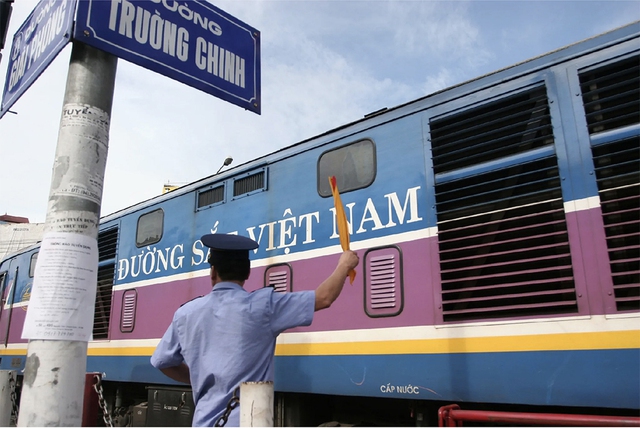
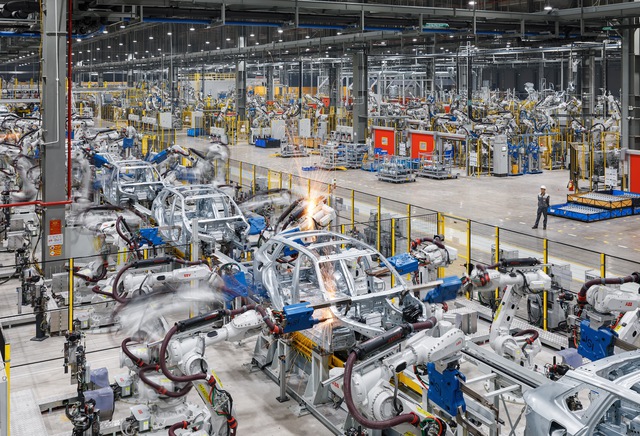
![[Photo] Binh Trieu 1 Bridge has been completed, raised by 1.1m, and will open to traffic at the end of November.](https://vphoto.vietnam.vn/thumb/1200x675/vietnam/resource/IMAGE/2025/10/2/a6549e2a3b5848a1ba76a1ded6141fae)









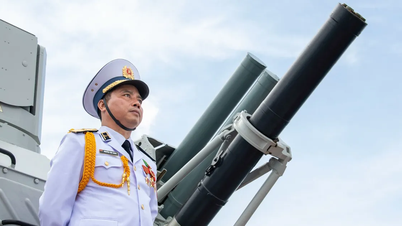

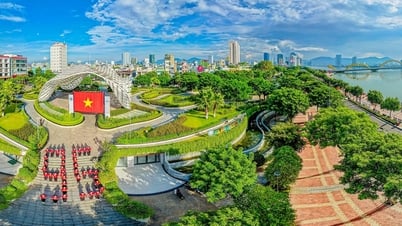






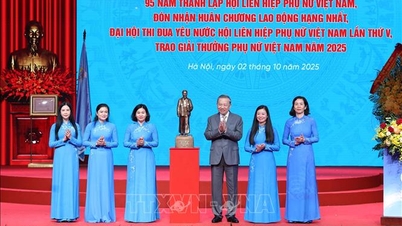
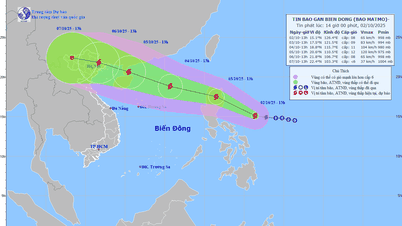
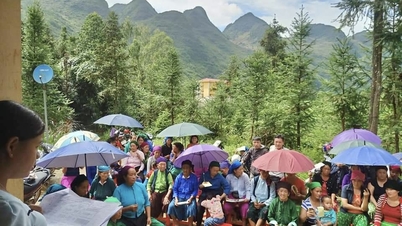

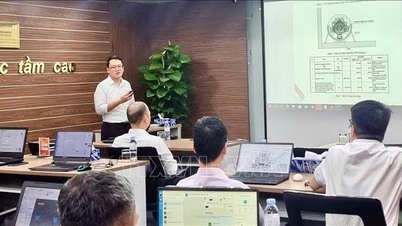




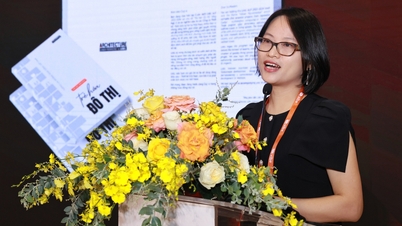


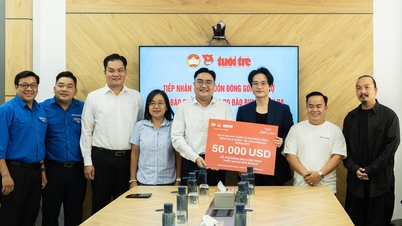
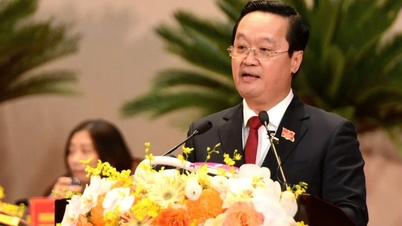










































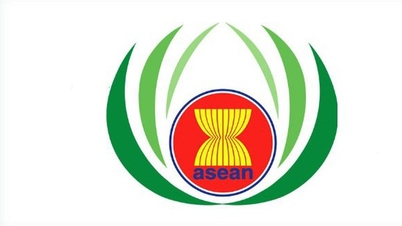
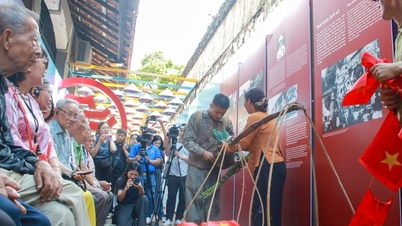

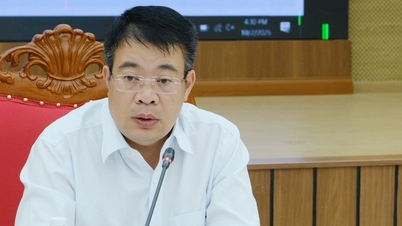

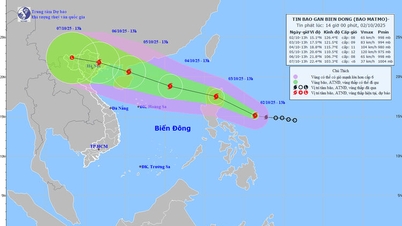

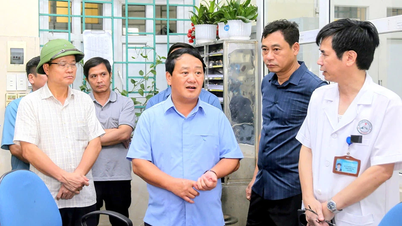

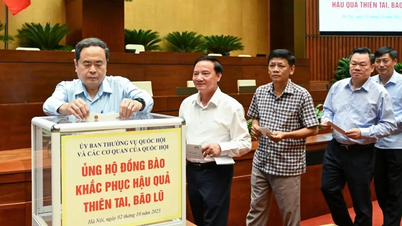
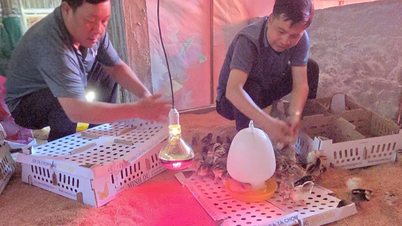














Comment (0)